Historical
Context
A turning point is defined as a period in history when a significant change occurs.
Three of these turning points were the Rise of Roman Empire, the Black Death,
theEnlightenment, and the World Wars of the 20th century.
Task:
Choose two
turning points in history (you may use these or two of your own choosing) and for
each:
• Explain why it
is considered a turning point.
• Evaluate whether the effect of the turning point has been positive or
negative.
Part A
Answer the questions related to each document
after reading and viewing them.
|
|
|
DOCUMENT
I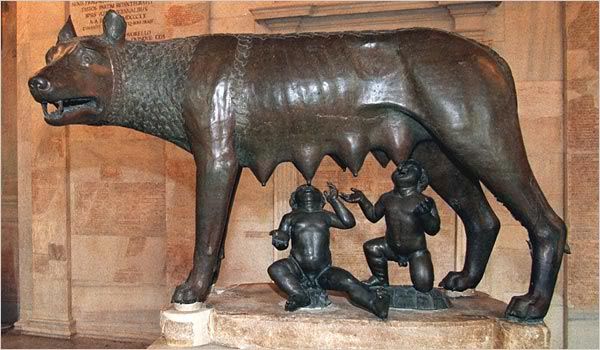 The she-wolf with the boys, Romulus and Remus
|
|
|
1.
|
How does this image relate to the founding of
Rome?
|
|
|
2.
|
Does this image speak to the violence that would occur in
Rome? Explain
|
|
|
DOCUMENT
II
“The
word "empire" derives from the Latin “imperium”, the absolute authority held by
the rulers of ancient Rome. By sheer military force, Rome's rulers created the West's
largest and longest-lasting empire: a world state consisting of many different lands and peoples,
governed by a single, sovereign power. Rome was not the first of antiquity's empires; from
Sargon and Hammurabi to the kings of Assyria and Persia, territorial ambitions had driven the course
of empire. However, the Romans created the most far-reaching of the ancient empires, and Rome's
influence outlasted that of its predecessors by centuries.”
-Professor James
Repka, Saddleback College
|
|
|
3.
|
How did Rome, according to the author, become an imperial
power?
|
|
|
4.
|
What made Rome stand out in comparison to other empires of
the past?
|
|
|
DOCUMENT
III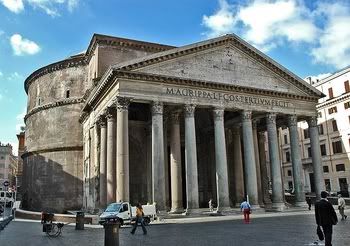 Above:
The Pantheon, Rome Above:
The Pantheon, Rome
Below: The Rotunda, University of Virginia [designed by Thomas
Jefferson]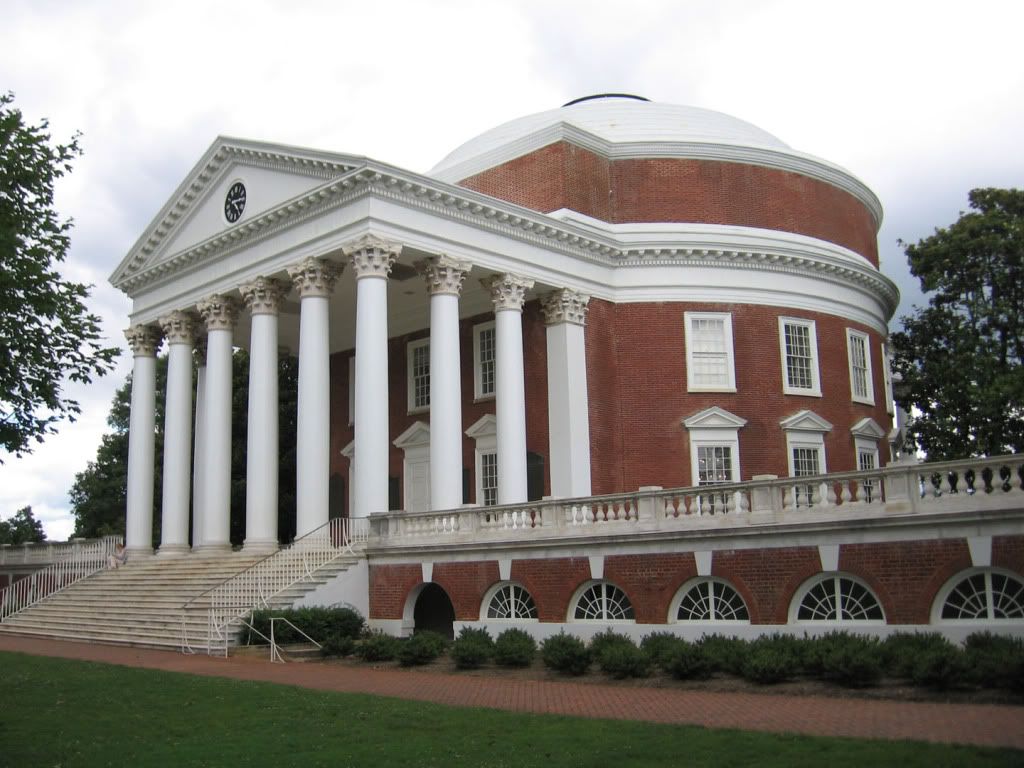
|
|
|
5.
|
Why are these buildings similar?
|
|
|
6.
|
What inisght does the newer building [The Rotunda]
give you into the life of Thomas Jefferson?
|
|
|
DOCUMENT
IV
"Realizing what a deadly disaster had come to them
the people quickly drove the Italians from their city. However, the disease remained, and soon death
was every where. Fathers abandoned their sick sons. Lawyers refused to come and make out wills for
the dying. Friars and nuns were left to care for the sick, and monasteries and convents were soon
deserted, as they were stricken, too. Bodies were left in empty houses, and there was no one to give
them a Christian burial.
-Unknown
|
|
|
7.
|
How does the writer describe the Black Death [Bubonic
Plague]?
|
|
|
8.
|
Why were the Italians possibly driven away?
|
|
|
DOCUMENT
V
"Neither physicians nor medicines were effective.
Whether because these illnesses were previously unknown or because physicians had not previously
studied them, there seemed to be no cure. There was such a fear that no one seemed to know what to
do. When it took hold in a house it often happened that no one remained who had not died. And it was
not just that men and women died, but even sentient animals died. Dogs, cats, chickens, oxen, donkeys
sheep showed the same symptoms and died of the same disease. And almost none, or very few, who showed
these symptoms, were cured. The symptoms were the following: a bubo in the groin, where the thigh
meets the trunk; or a small swelling under the armpit; sudden fever; spitting blood and saliva (and
no one who spit blood survived it). It was such a frightful thing that when it got into a house, as
was said, no one remained. Frightened people abandoned the house and fled to
another."
-Marchione di
Coppo Stefani
|
|
|
9.
|
How do you believe the Black Death affected culture, art,
and politics?
|
|
|
10.
|
How did think that Black Death affected the minds and moods
of people at this time? Explain your answer.
|
|
|
DOCUMENT VI 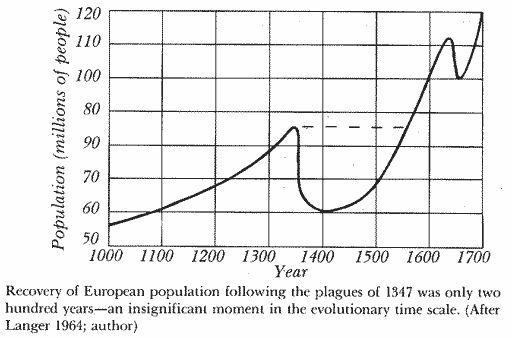 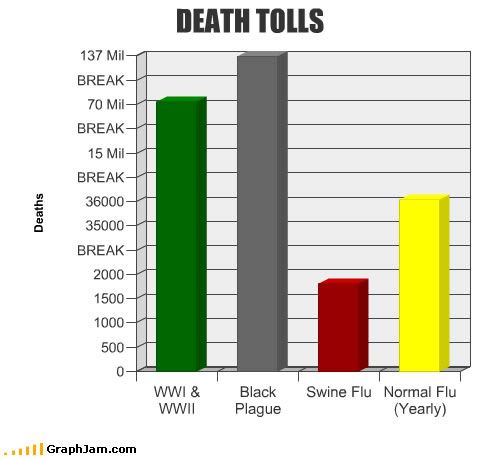
|
|
|
11.
|
How far did the population fall from 1347 to
1400?
|
|
|
12.
|
How many more people died in the Black Plague (Black Death)
than WWI and WWII?
|
|
|
DOCUMENT
VII
(Equality is ...)
"That equal right which every man hath, to his natural freedom, without being subjected to the
will or authority of any other man".
-Second Treatise, chapter 6
|
|
|
13.
|
Who is is the author of this passage?
|
|
|
14.
|
How did the ideas and the ideas of others who thought like
him spark revolutions?
|
|
|
DOCUMENT VIII
"In
all ages of the world, priests have been enemies of liberty."
-David Hume, 1741 - 1742 - Essays: Moral and Political
|
|
|
15.
|
What does this statement say about the relationship between
some thinkers of the Enlightenment and the church?
|
|
|
16.
|
Do you that there is a split between religion and science
that exist still?
|
|
|
DOCUMENT
IX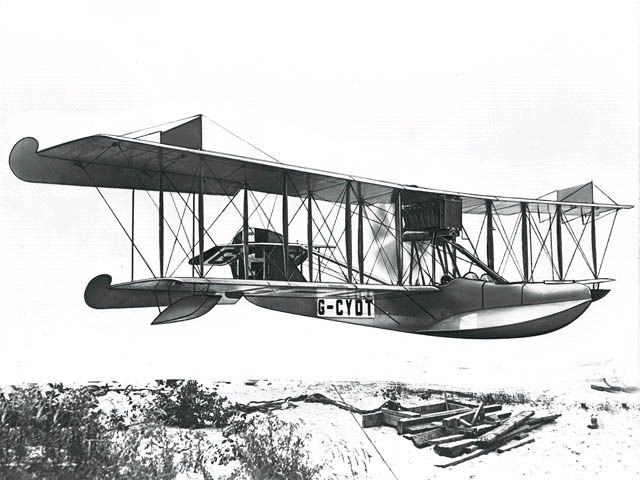 Above:
World War I Aircraft Above:
World War I Aircraft
|
|
|
17.
|
What role did technology play in the first World
War?
|
|
|
18.
|
How was aircraft an innovation of the War?
|
|
|
DOCUMENT
X
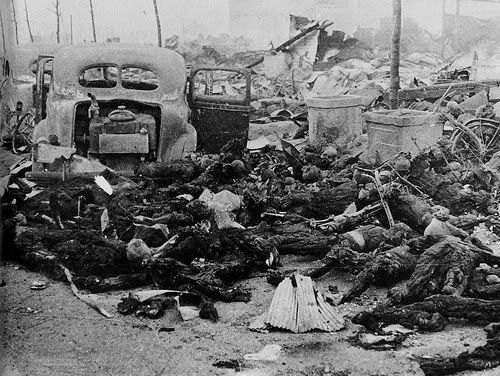 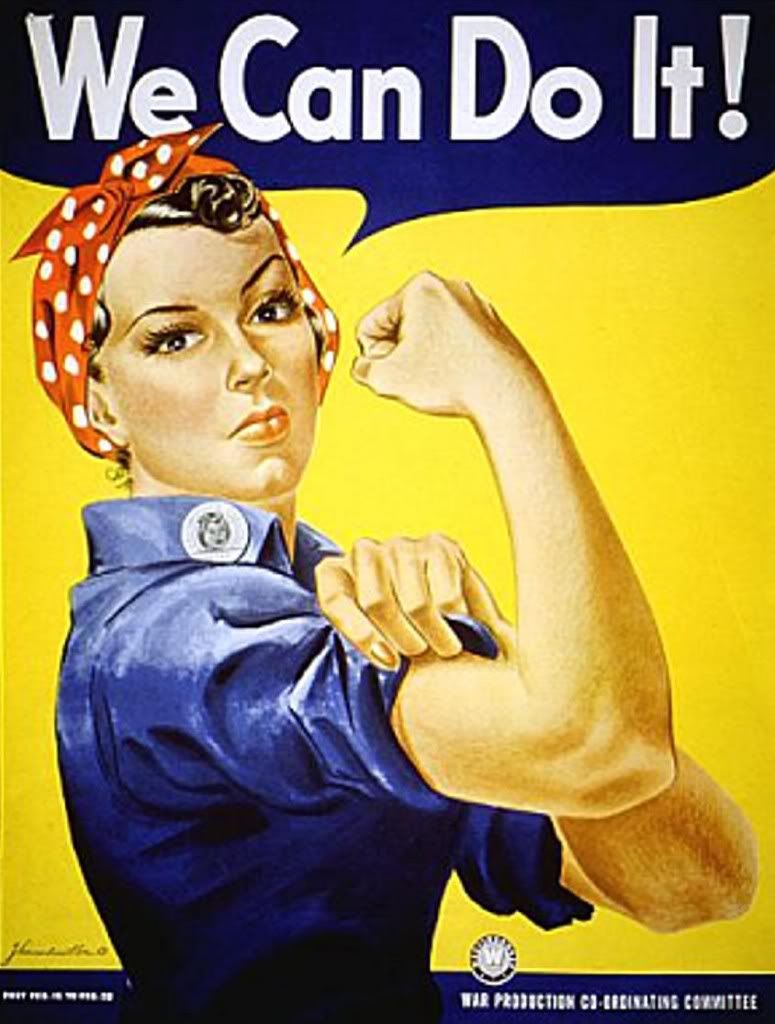 Above: A Japanese town after US firebombing Above: A Japanese town after US firebombing
Right: Rosie the Riviter; A WWII
symbol in the United States
|
|
|
19.
|
How did the Second World War positively affect the lives of
women in the United States?
|
|
|
20.
|
How did the Second World War negatively effect the lives of
Japanese civilians?
|